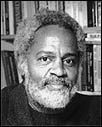![]()
![]()
![]()
![]()
![]()
![]()
Scholars Discuss
Post-Affirmative Action Strategies at Day-Long
Conference
By D. Lyn Hunter,
Public Affairs
Posted April 21, 1999
|
|
|
"If you read the legislation closely, it clearly states that race cannot be used unless it interferes with federal regulations regarding funding of public institutions," said Duster, who noted that the UC system receives millions of federal dollars each year for research. "I'm not proposing that we break the laws, but they have been misstated."
Duster was a featured speaker at one of three panels presented during a day-long conference April 16 on maintaining diversity in the academy without affirmative action. The discussion, sponsored by the Boalt Hall School of Law and held in Boalt Hall's Booth Auditorium, featured Berkeley scholars and faculty from around the country.
While Duster suggested that current laws be looked at more closely, he also provided several ideas for improving diversity without the use of affirmative action, including an overhaul of admissions tests like the SAT, LSAT and MCAT.
Test scores are used to determine which students are most qualified for university admission. However, Duster said competency and skills are multi-faceted and multi-tiered, and cannot be measured accurately using current testing methods.
"Johns Hopkins ended the use of the MCAT for medical school admissions more than 10 years ago without sacrificing quality," said Duster.
Carole Goldberg, a professor of law at UCLA, said the preservation and support of ethnic studies departments is an important tool for increasing diversity on campus.
"Ethnic studies helps educators overcome obstacles in this era of legal constraints," said Goldberg. "These departments provide a welcoming face and place for students of color, and attract applicants and faculty."
Goldberg added that public universities can greatly increase the representation of Native Americans by using a special admissions process based on tribal membership. With Goldberg's urging, UC President Richard Atkinson has directed the system's legal counsel to prepare an opinion on this issue.
While improving K-12 education is crucial to boosting minority enrollment, it is also necessary to address specific variables that affect college eligibility for Latino students, said Eugene Garcia, dean of Berkeley's Graduate School of Education.
A student's ability to speak English, his or her immigration status, race, segregation, poverty and lack of family history in higher education "all count and we must pay attention to these factors," Garcia said.
A special teaching program called "Puente" was developed to respond to these issues and has been quite successful, Garcia said. Berkeley offers a credential certificate that trains teachers specifically for Puente.
Walter Allen, a UCLA sociology professor, said part of the reason for California's affirmative action backlash is a result of poor planning by UC.
"We didn't keep pace with the state's population explosion, so now there are more contenders for fewer spots," said Allen. "This combined with an economic downturn in the mid 1990s created a breeding ground for discontent."
To improve the climate for diversity, Allen said the university must make structural, psychological and behavioral changes that involve students, faculty and administrators.
"If there is a will, there is a way," said Allen. "With
enough effort, resources and commitment, this shameful
pattern can be reversed."
![]()
![]()
April 21 - 27, 1999
(Volume 27, Number 31)
Copyright 1999, The Regents of the University of
California.
Produced and maintained by the Office
of Public Affairs
at UC
Berkeley.
Comments? E-mail berkeleyan@pa.urel.berkeley.edu.
